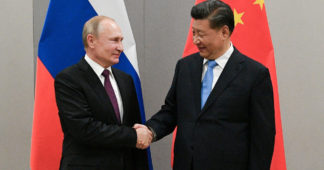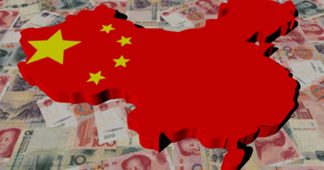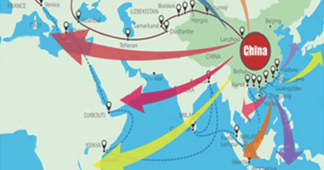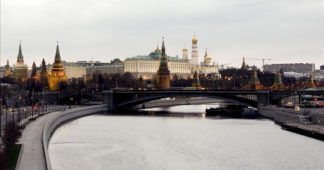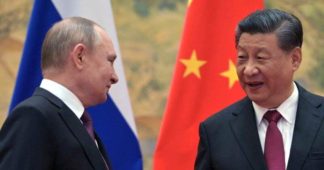By Panagiota Paparouna*
Shang-hai, was an oval city, surrounded by high walls, with an outlet of five gates opening on its suburbs, as Julius Verne written in 1879. After the humiliating for China Treaty of Nankin (August 1842), foreigners for the first time possessed the right to establish trading stores. Here was the great port opened in China to European traffic: outside of Shang-hai and its suburbs, the Chinese government ceded, for an annual sum, three portions of territory to the French, English, and Americans, who numbered about two thousand were the “collective West” of that time. Since then, they occurred huge geopolitical turbulences, which changed the world rapidly, but two historic falls. The fall of Berlin Wall (11/9) 1989 and the end of the Cold War after the collapse of USSR while the sole American superpower were gloating over its victory! The collapse of the twin towers in New York (9/11) 2001 where probably would started the famous Huntington theory about the “Clash of Civilizations”.
The Eurasian reaction was the establishment and development of an equal dialogue between civilizations when the “Shanghai Five” (China, Russia, Kazakhstan, Tajikistan and Kirgizia) gathered in Shanghai in April 1996 in the name of good neighborliness and friendship that evolved into the “Shanghai spirit”. In order to: 1) Settle the cross-border disputes after the collapse of Soviet world. 2) Dealing with poverty and famine in chaotic situations. There were obsolete infrastructures even for the countries with rich wealth producing resources. 3) Facing the Afghan factor under the radical theocratic Taliban regime. 4) Combating the three daemons of Central Asia (terrorism, separatism and extremism) with organized crime drug and trafficking. And last but not least 5) limiting the American influence in Eurasia from various «orange revolutions» that were broken out from time to time against the fragile former communist and then Islamic states and regimes of Central Asia.6) creating a new Eurasian area of security and prosperity.
In June 2001, the preparatory phase “Shanghai Five” plus Uzbekistan established the Shanghai Cooperation Organization (SCO) based on the principles of the “Shanghai Spirit”. According to article 2 of the SCO Charter : mutual respect of sovereignty, independence, territorial integrity of States and inviolability of State borders, non-aggression, non-interference in internal affairs, non- use of force or threat of its use in international relations, seeking no unilateral military superiority in adjacent areas. Equality of all member States, search of common position on the basis of mutual understanding and respect for opinion of each of them. SCO being not directed against other States and international organizations, prevention of any illegitimate acts directed against the SCO interests. The SCO bodies take decisions by consensus and all member states are equal regardless of status or size.
The SCO was introvertted while in its 15th Summit of Ufa showed the organization’s extroversion and become more active where the first enlargement decided with the inclusion of two nuclear forces, India and Pakistan in 2017. The rise to power of ambitious and extroverted Chinese President Xi Jinping (2012) was very important factor with his ambitious vision of One Belt one Road Initiative (OBOR) under auspices of SCO. The China’s revival of the Silk Road project is a global infrastructure development strategy where take part more than 150 countries and international organizations. Such giant extremely expensive project needs stability and peace to make business. That is a reason why China promote in every way the soft power of consensus of the SCO trying to persuade the countries along the OBOR to take part on the project. On the dark side of the moon OBOR get criticized a lot because in some cases dragging weak countries into a debt trap, as for example the Sri Lanka case.
Regardless the thorny matters the SCO has emerged as alternative paradigm in the development of global order with many significant achievements, against all the odds. The SCO is a mosaic of different cultures, peoples, and religions that despite their differences have managed to create a gigantic but flexible organization that performs important work after managing to expand within and outside of Eurasia reaching even the Middle East countries. In addition, the fact that all member states are trying despite their significant geopolitical differences to work together to deal with bilateral, regional and even international issues is constantly gaining more and more interest. Obviously, this is not just a talk shop organization but produces results. The fact that the SCO do works and produce significant results is very important matter and good practice for the international relations nowadays. One of the greatest achievements of SCO is that countries with significant and chronic disputes sit at the same table as partners and not as rivals despite their burning different geopolitical interests.
In successful Samarkand Summit of SCO in 2022 there were many Arabic countries especially from Middle East which officially asked to get some status connection with the SCO where was as a shock for the “Collective West”. “The SCO is strong if each of us is strong” is the current slogan of the Samarkand Summit.
A good practice that created the spirit of Shanghai is the BRICS mechanism (Brazil, Russia, India, China, South Africa) which is expanding to other continents outside of Eurasia. The recent Summit in South Africa is considered successful with over twenty countries that requested to join while six new member states Argentina, Egypt, Iran, Ethiopia, the United Arab Emirates (UAE) and Saudi Arabia were accepted to join the association. UN Secretary-General António Guterres attended the bloc’s expansion announcement, reflecting the growing influence of BRICS.
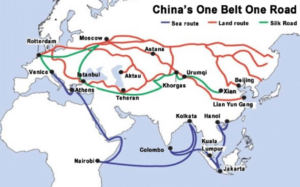 To sum up, so far the states that participate in SCO family have observed a “Gentlemen’s Agreement” that has lasted for over twenty years with tangible results of stability and development. Equal cooperation within the organization is chosen rather than conflict for the sake of growth. SCO cannot transform into the “Asian NATO” as the most of the western mass media persist because in that case it would lose its flexibility that keeps the member states together. They offering “spondes” (libations) with respect to the spirit of Shanghai cooperation but every state keeps its sovereignty and flexibility in multilateral relations with other states or organizations. The number of states applications it receives proves its successful course. The future of the SCO depends on China-Russia relations and probably the relations between China and India but above all the American superpower reaction.
To sum up, so far the states that participate in SCO family have observed a “Gentlemen’s Agreement” that has lasted for over twenty years with tangible results of stability and development. Equal cooperation within the organization is chosen rather than conflict for the sake of growth. SCO cannot transform into the “Asian NATO” as the most of the western mass media persist because in that case it would lose its flexibility that keeps the member states together. They offering “spondes” (libations) with respect to the spirit of Shanghai cooperation but every state keeps its sovereignty and flexibility in multilateral relations with other states or organizations. The number of states applications it receives proves its successful course. The future of the SCO depends on China-Russia relations and probably the relations between China and India but above all the American superpower reaction.
* Master in European and International Relations, University of Athens (EKPA).
We remind our readers that publication of articles on our site does not mean that we agree with what is written. Our policy is to publish anything which we consider of interest, so as to assist our readers in forming their opinions. Sometimes we even publish articles with which we totally disagree, since we believe it is important for our readers to be informed on as wide a spectrum of views as possible.
